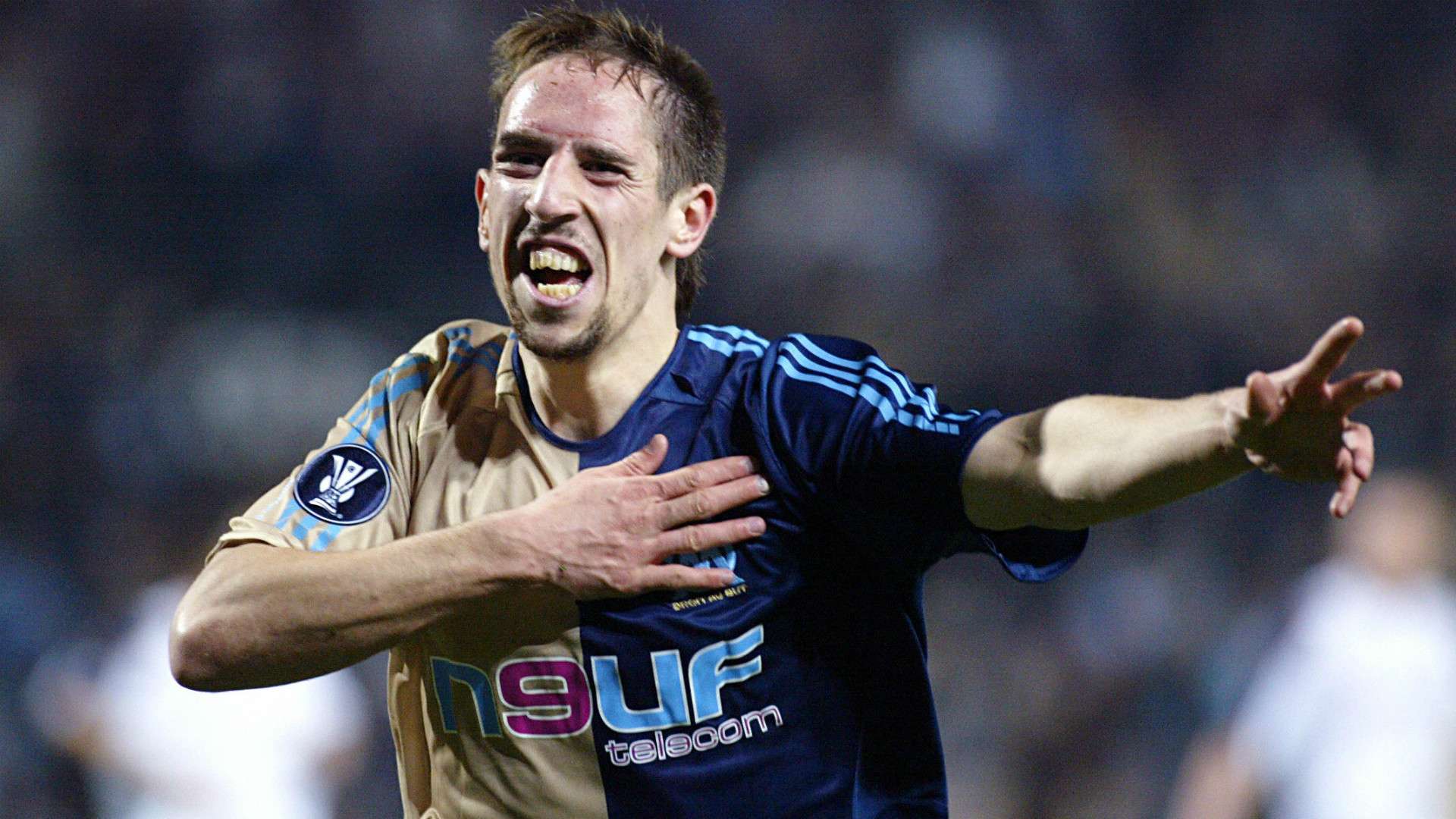Franck Ribery very nearly never made it to Ligue 1. He very nearly never made it at all.
His life could have been over before it had hardly even begun.
“The problem was that I was sitting in the back and I went flying forward on impact,” he said of the terrifying car crash in which he was involved as a two-year-old.
The accident left the toddler requiring 100 stitches for a head wound, leaving him with a sweeping scar down the right side of his face – something he has worn ever since, as something of a badge of honour.
 Getty Images
Getty Images“I’m proud of my scar. It gave me strength and forged my character. You have to be mentally strong to withstand the ridicule of other children and the stares of adults,” he told author Simon Kuper in The Football Men.
“So here I am. This is my face, it is the one people know me to be. I am happy with my face. Why shouldn’t I be happy?”
“In a certain way, this accident helped me. As a child, it motivated me.”
That motivation took him to the top of the world game, though it was anything but a smooth ride. He spent his adolescence on the back streets of Boulogne-Sur-Mer in northern France.
Raised in an area with high unemployment and little opportunity for its mostly immigrant population, Ribery spent his days playing football with whoever else was around.
As a teenager, he was taken on by Lille, but was later dismissed from their youth setup for his academic failures.
 Getty Images
Getty ImagesNot that he let that deter him. It just meant he had to take a path increasingly less trodden by his contemporaries. There would be no direct route to superstardom for Ribrey. No Clairefontaine academy. No professional structure for guidance. Ribery would have to take the long road – and he’d have to go it alone.
He began playing semi-pro, working on a building site to substitute his income. After moving from hometown club Boulogne to amateur side Olympique Ales in southern France, he finally earned a professional contract with Stade Brestois in 2003.
A single season as a pro convinced Metz to take the plunge. His first season brought 20 appearances as Metz finished 14th in Ribery’s long-awaited Ligue 1 debut season.
The secret was out, however, and in the summer of 2004 he headed to Turkey to join Galatasaray, where he once again earned plaudits – and a nickname of ‘Ferraribery’ for his incessant, pacey running down the right wing.
However, a dispute over pay saw him return to France after just five months in just one of a number of controversial moments in Ribery’s long rise to the top.
 Getty Images
Getty ImagesHe returned to Ligue 1 to join Marseille, after his move was eventually sanctioned by both FIFA and the Court of Arbitration for Sport (CAS). Ribery had made it, and he made an instant impression for OM, leading them to two Coupe de France finals and a second-place finish behind Lyon in 2006/07. He was named Ligue 1 Young Player of the Year after helping France to the World Cup final in 2006.
Two campaigns with the club also saw him gain worldwide attention. A street footballer with no formal education in the game upon which to draw, Ribery delighted his home crowd and neutrals from around the world.
In 2007, Bayern Munich won a hotly-contested race for the French Footballer of the Year, securing a €25 million switch to the Bundesliga. Countless German league titles and the UEFA Champions League would follow.
Ribery had made it.




